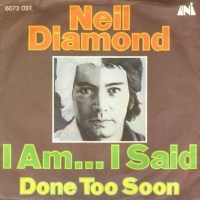
 To spend July, as this column has, writing about the state of the industry, radio streaming, the record/radio relationship, and other overarching issues, is to inevitably prompt the “bless Sean’s heart” response from at least a few readers. The notion of any aspect of our business as fixable, much less functional, might come across as naïve to many. I’m not naïve about that either. And my imaginary friend Marconi the Unicorn backs me up on that.
To spend July, as this column has, writing about the state of the industry, radio streaming, the record/radio relationship, and other overarching issues, is to inevitably prompt the “bless Sean’s heart” response from at least a few readers. The notion of any aspect of our business as fixable, much less functional, might come across as naïve to many. I’m not naïve about that either. And my imaginary friend Marconi the Unicorn backs me up on that.
My “declaration of principles” about the Ross on Radio column itself has been lurking for years but was never the most important thing to write about in a given week. Symmetry means that now is a logical time to share it. I’m guessing that it still won’t be the top story in the newsletter when you see it. But it’s never a bad time to remind readers, friends, and colleagues that …
I genuinely believe in radio. There is zero cognitive dissonance in saying that. I believe there will always be a demand for the things radio does. Broadcasters have big brands and understand what radio does better than any of our competitors. I hear radio I enjoy every week, even though I put more effort into finding it than the average listener would. I can’t solve the budget issues that keep radio from being its best self. I can try to keep the dialogue moving forward. I don’t believe we are spiraling, but stagnating is frustrating, too.
Better is better. Could radio streaming actually take hold after 20 years of missteps? Could radio find a magic bullet to attract a 23-year-old? Is there still an opportunity to break records, rather than abdicating that job to streaming? Let’s make things better and find out. I have no plans to concede that any of our problems are unfixable until our products are fixed.
I come in peace. As an industry, we have endured enough daily papercuts to know that the truly fatal number would be well upwards of a thousand. Ross On Radio is meant to be at least one time each week that you will not get a papercut from opening your mail. There are industry people who have made a surprisingly viable franchise of “everything sucks, and you are all idiots.” I have brief envy pangs about their ability to build a career that way. But there can’t be a dialogue if you’re worried about me throwing up in your inbox.
It’s OK to care about programming. I grew up in the business with places to discuss radio programming, mostly but not only Radio & Records, which gave me a head start when I finally got opportunities to work in radio. For the 15 years that ROR has been a stand-alone newsletter, one of the goals has been offering a place, in conjunction with Radioinsight.com, where that discussion could continue, and we had a place to think about both the future of the business but also the detail work that has been discouraged lately.
This is a newsletter about radio and music trends and history. They necessarily go together. I regard them as additive, not a zero-sum discussion. Seen correctly, radio’s history is a resource for its future. If the discussion ever seems tilted to the past, it is in part to remind an industry that now wants to get back to personality, showmanship, and community what that sounded like. It’s also because those things haven’t truly materialized on competing platforms, nor really has effective curation. I want to write about the thing that finally successfully succeeds radio. I’d be even happier if it was developed in-house.
The intent is a discussion, not a lecture. The columns I’m happiest with are always the ones that generate the most comments. If you ever feel like I’m not writing about the things that you’re seeing or experiencing, maybe it’s because we’re not talking enough. (You’ll also be helping me with my goal of never writing what you’ve recently seen elsewhere.) There have been a few occasions in recent years where industry acquaintances have become new old friends, and I’m appreciative whenever there’s an opportunity for that to happen.
Thank you for being a friend of ROR and radio. There are some readers who respond to each issue of the newsletter within minutes. Others pop in more occasionally, particularly when I write specifically about their format. Wanting to make sure that every radio, label, and industry person is able to be part of the discussion — however often they’d like — is a key factor in this newsletter remaining free, and also why I really value the advertisers who make that possible, along with the platform that Radioinsight provides. And if you’re reading this, you likely regard radio and hit music as a discussion still worth having. I appreciate that, too.
This story first appeared on radioinsight.com
